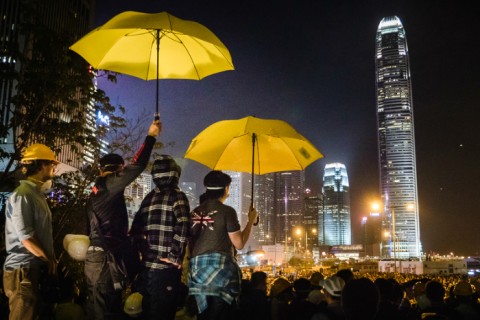Christians and secularists under the same umbrella

Hong Kong is a tiny but extremely rich territory that occupies a delicate position within the People’s Republic of China. Over the coming year, Hong Kong’s internal affairs are going to feature prominently in international news, with far-reaching implications for the city’s small but influential Christian minority.
Britain acquired Hong Kong, the “Fragrant Harbor,” after the 19th-century Opium Wars, and in modern times it grew to become a global financial center where today some 7 million people live in one of the world’s most densely packed cities.
China, naturally, resented this continuing insult to its authority and maintained pressure to resume control. In 1984, Britain and China concluded an agreement by which Hong Kong acknowledged Chinese sovereignty, but under remarkably generous and statesmanlike terms. For 50 years after the merger, Hong Kong would retain substantial autonomy, respecting such traditions as a free press, an independent judiciary, and the territory’s freewheeling capitalist economy. In 1997, China finally celebrated the return of its long-lost territory. Many Hong Kong residents were delighted to acknowledge a reassertion of Chinese cultural pride, even if they had concerns about the future.





